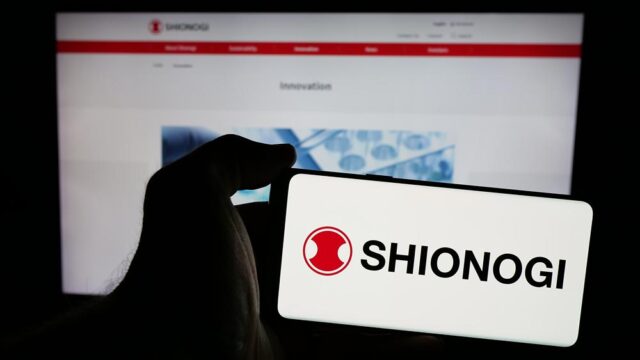Advertisment
Sloan Kettering Institute scientists design CAR T cells to activate cancer pro-drugs at the disease site

Immunotherapies called chimeric antigen receptor (CAR) T cells use genetically engineered versions of a patient’s own immune cells to fight cancer. These treatments have energized cancer care, especially for people with certain types of blood cancers. Now, scientists at Memorial Sloan Kettering Cancer Center’s Sloan Kettering Institute (SKI) have developed new CAR T cells that can activate cancer pro-drugs at the disease site.
Standard-issue CAR T cells are designed in the laboratory to recognise specific markers on cancer cells. When these CAR T cells are given back to a patient, they proliferate and go on the attack, acting as a kind of ‘living drug’.
Despite their usefulness for treating blood cancers, there are several limitations of current CAR T models. One is that the CAR T cells can only kill cancer cells that contain the marker they are designed to recognise. But it is not uncommon for cancer cells to stop making this marker and thus to ‘escape’ from the therapy.
A second problem is that CAR T cells can become ‘exhausted’ — and even inhibited by the cancer cells themselves. Lastly, existing CAR T cells work well only against blood cancers that the CAR T cells can easily reach. Against dense solid tumours in the lung or breast, they are mostly powerless.
To overcome these hurdles, the team of SKI researchers explored a novel approach to developing CAR T cells that can generate a small-molecule, anti-cancer drug locally at the disease site. This system can deliver a toxic drug payload directly to a tumour, killing both tumour cells that contain the cancer marker as well as those cancer cells nearby that do not. What’s more, the engineered cells can produce the drug even after they become exhausted, and the drug is not suppressed by the cancer.
“We call them SEAKER cells,” says physician-scientist David A. Scheinberg, Chair of the Molecular Pharmacology Program in SKI who also directs the Center for Experimental Therapeutics. “SEAKER stands for Synthetic Enzyme-Armed KillER cells. These cells combine the target-seeking power of immune cells with the ability to locally generate a potent anticancer drug for double effect.”
The cancer-fighting molecule is one that SKI Chemical Biology Program Chair Derek Tan — Dr. Scheinberg’s collaborator on the project — discovered previously while developing antibiotics. The molecule, called AMS (5′-O-sulfamoyl adenosine), is so powerful that it cannot be injected directly into an animal’s bloodstream. But when it is produced locally just at the site of a tumour, it is effective at safely killing cancer cells in mice. The scientists have not yet tested the technology in people.
Details about the SEAKER platform, which the scientists say has applicability to both cancer and other diseases, were published on December 30, 2021, in Nature Chemical Biology.
The SEAKER approach
The idea of using CAR T cells to deliver additional therapeutic agents is not new. Several research groups have shown it’s possible to get them to make immune proteins like antibodies and cytokines. However, getting CAR T cells to produce a small-molecule cancer drug is a trickier prospect.
The SEAKER system links an anti-cancer molecule to another chemical, in this case either glutamate or cephalosporin, that ‘masks’ its function. The genetically engineered CAR T cells are designed to make an enzyme that cuts the masking molecule from the drug. The enzyme acts as scissors, activating the drug at the site of the tumour.
It’s very exciting that we got it to work.
The scientists tested their SEAKER cells on both cancer cells growing in a dish and in mouse models. In both cases, the SEAKER cells performed better than regular CAR T cells at killing the cancer cells. The SKI team also showed that their SEAKER cells work with several different prodrugs and several different cleaving enzymes
Now that SEAKER cells have been shown to work in mice, there has been a lot of interest in the approach and a company called CoImmune has already licensed the technology from MSK to develop the CAR T cell technology for human trials.
Dr. Scheinberg speculates that a clinical trial in cancer is about two to three years away.
Key Takeaways
- Chimeric antigen receptor (CAR) T cell therapy is a type of immunotherapy that uses genetically modified versions of a person’s own immune cells to fight cancer.
- Current models of CAR T cells have several limitations, including a tendency to stop working after a period of time.
- A team of scientists at MSK’s Sloan Kettering Institute have developed new versions of CAR T cells that overcome some of these limitations.
- These new CAR T cells act as ‘micropharmacies’, delivering small-molecule anticancer drugs directly to the site of a tumour.
Reference
Gardner, T.J., Lee, J.P., Bourne, C.M. et al. Engineering CAR-T cells to activate small-molecule drugs in situ. Nat Chem Biol (2021). https://doi.org/10.1038/s41589-021-00932-1
Image
SKI scientists David Scheinberg and Derek Tan





